What do chickens eat to stay healthy: the nutritional requirements, chicken feed alternatives, and what not to feed chickens.
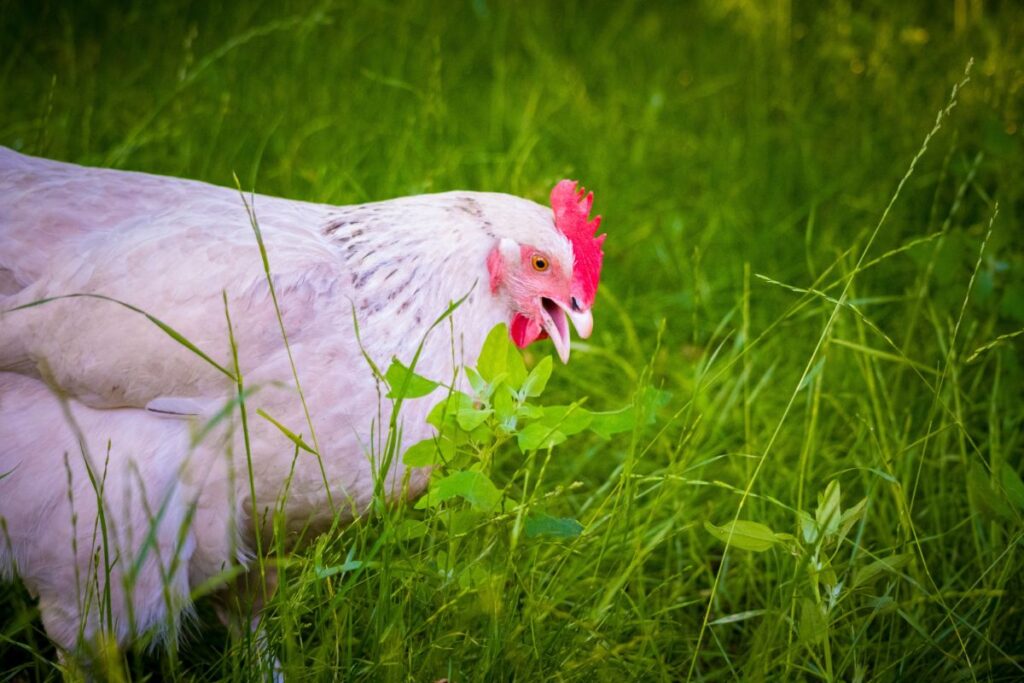
What do chickens eat? This has become an important question because of the rising cost of chicken feed and the rising cost of chicken eggs.
To keep your costs down, it's imperative to understand how to feed chickens without having to buy chicken feed.
What do chickens eat that is most cost effective and healthy?
Chickens find some of their own food when given access to the outdoors or pasture which provides green grass, weeds, insects, seeds, worms, and small critters for them to eat.
Unfortunately, too many people just buy a bag of commercial chicken feed and don't consider the healthier options. Most aren't even aware that chickens are omnivores and thrive on fresh foods.

You will have to keep in mind that laying hens require a certain amount of protein and other nutrients in order to produce eggs.
Knowing "what do chickens eat" and "what not to feed chickens" can help you save money and help you to raise healthier as well as happier chickens.
What do chickens eat: protein and fat sources for chickens.
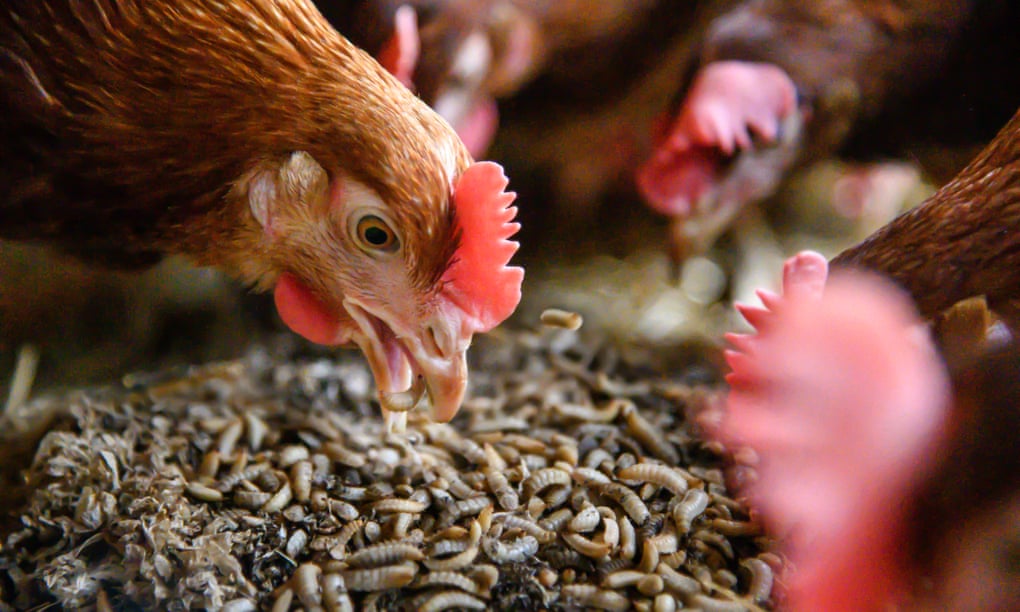
Earthworms are a very rich source of protein and fat for chickens.
Maggots or black soldier fly larvae are also high in protein and fat.
Beetle larvae, dried mealworms, and grubs are protein and fat sources.
Fish, meats, and raw meat scraps are a great source of protein and fat.
Mice, small lizards, and small snakes are also on the menu.
Grasshoppers and crickets are good protein and fat sources.
Peas are a good plant protein source.
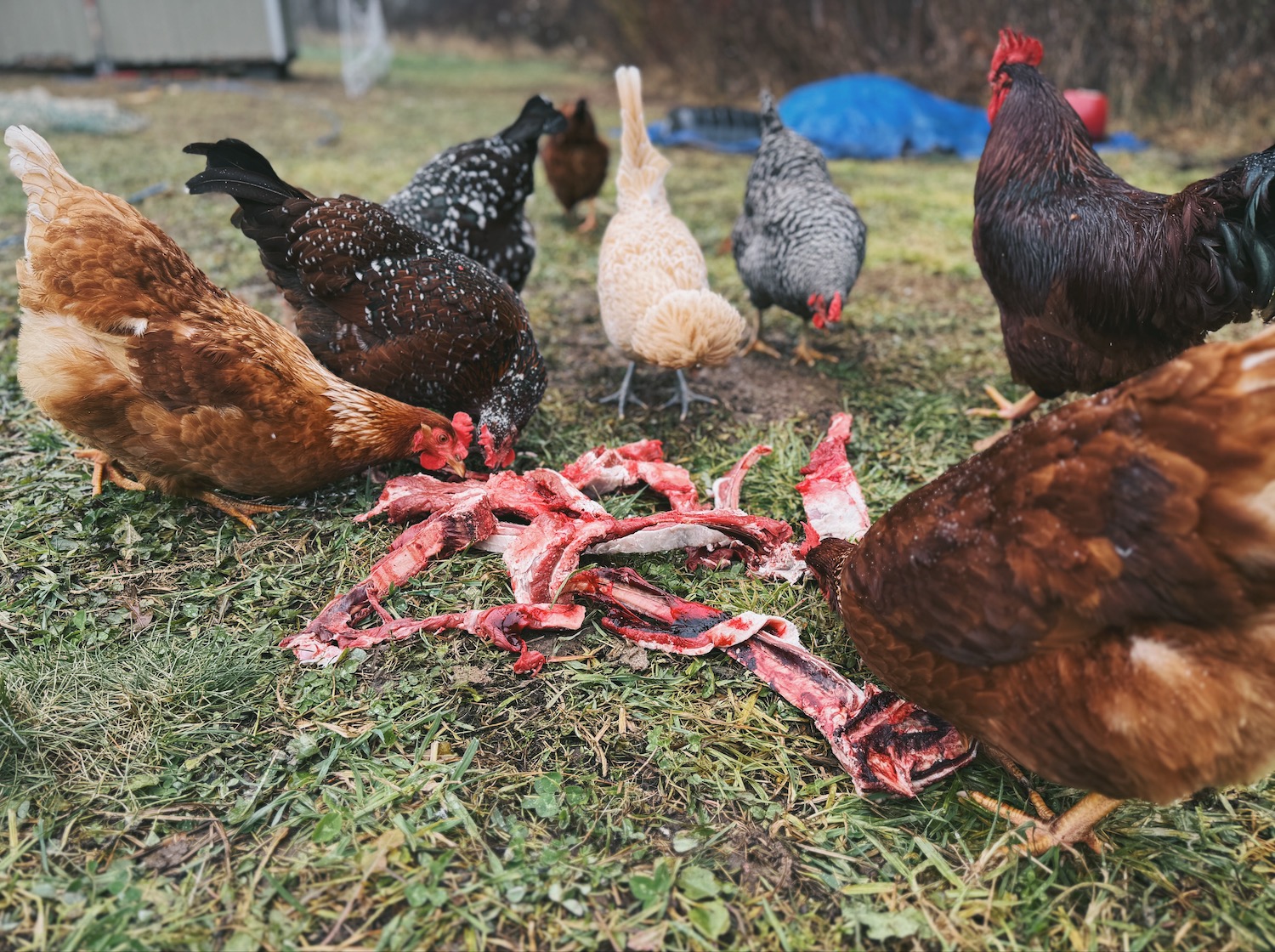
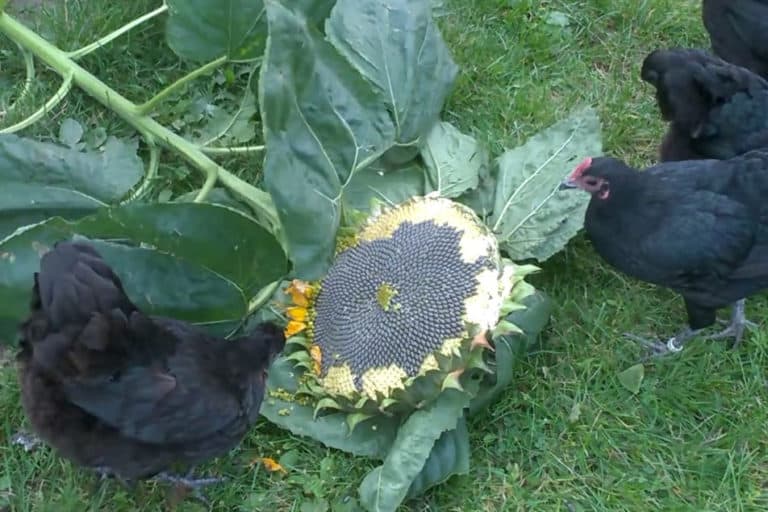
Sunflower seeds are packed with vitamin rich fat and protein.
Pumpkin seeds, flax seeds, and some nuts can be a source of fat and protein.
Small pieces of fresh coconut meat can be given to chickens. Coconuts are a good source of healthy fats.
What do chickens eat: calcium sources for strong eggs.
Raw dairy like raw milk, yogurt, and cottage cheese are good sources.
Vegetable scraps especially greens.
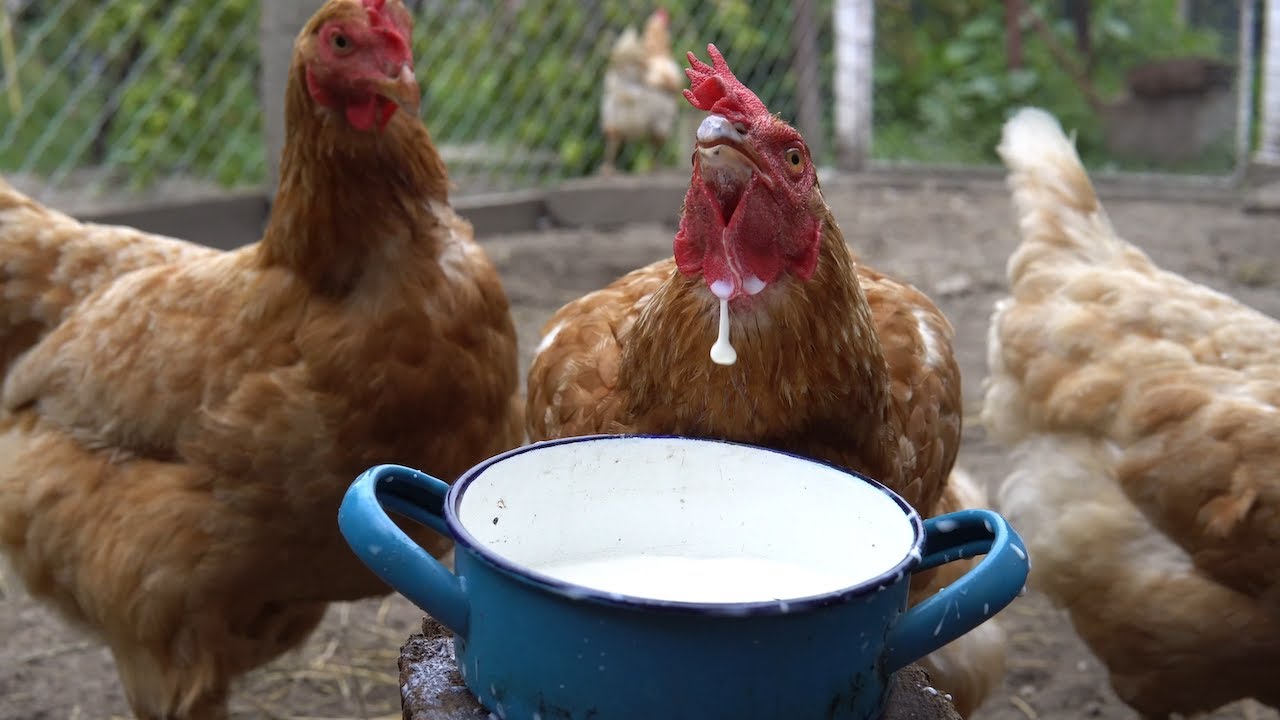
What do chickens eat: carbohydrates for energy.
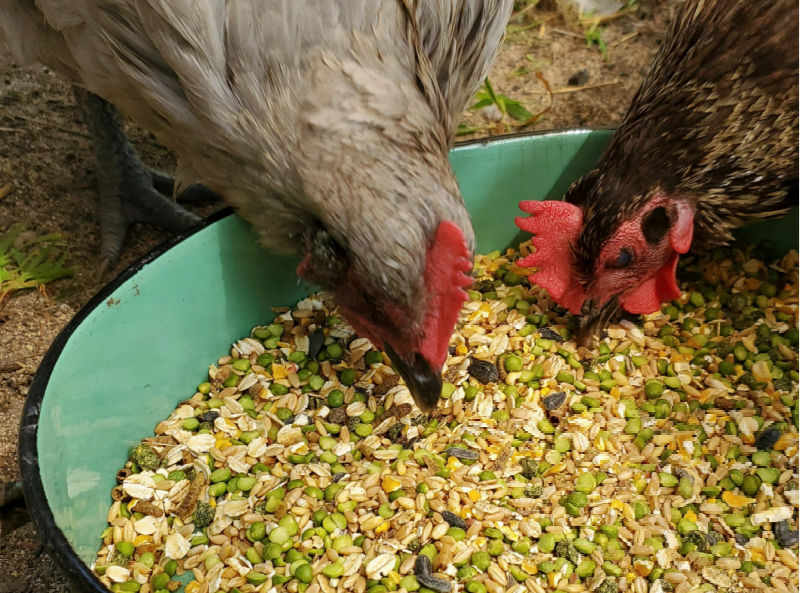
Whole grains are some of the best carbohydrates for chickens.
Wheat, corn, barley, oats, sorghum, rye, and millet are popular choices.
Organic chicken scratch is a favorite high energy treat for chickens.
Chickens love fruits as treats such as watermelon, berries, apples, grapes, melons, bananas, and cucumbers.
They also eat sweet potatoes, squash, pumpkins, and carrots either raw or cooked.
Leftover cooked oatmeal, rice, and whole grain pasta - occasionally.
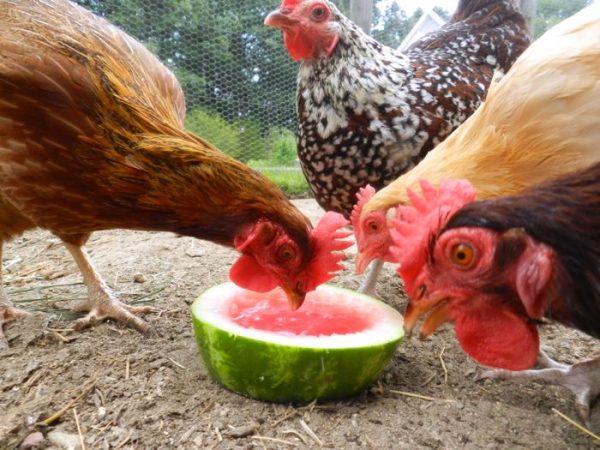
Nutritional requirements: what chickens need to lay eggs and how to save money.
Chickens will require a certain amount of nutrition in order to lay eggs for you and your family. Make sure your laying hens are getting enough protein or they will pick their feathers which contain protein.
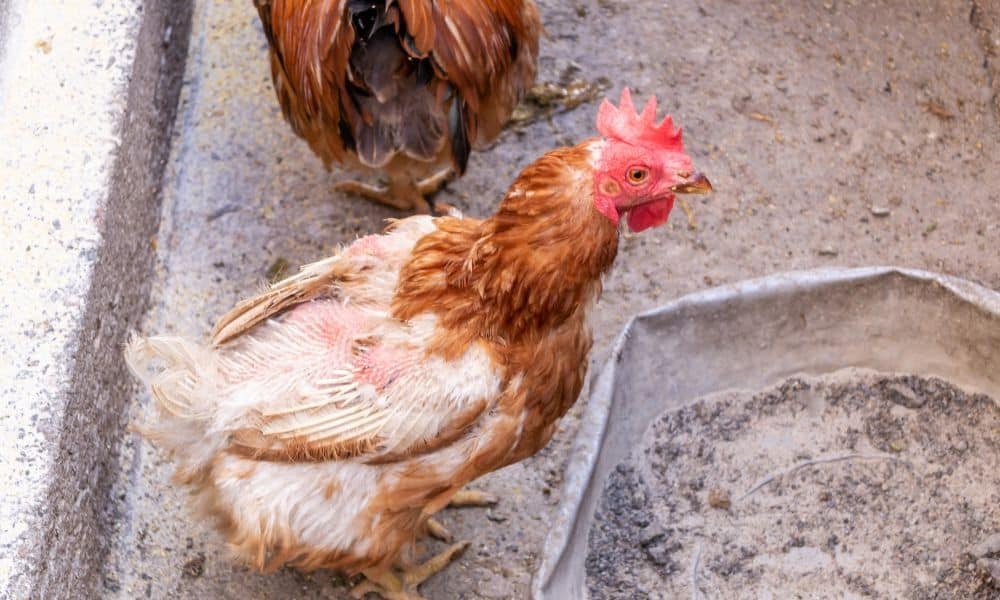
Make sure that egg laying hens get at least 16 to 18% protein in their diets and a moderate amount of fat which can be a good source of vitamins.
- Interestingly, chickens can handle more saturated fats than polyunsaturated fats.
Carbohydrates usually make up the biggest component of a chicken's diet, but don't let them eat too many carbs and be sure to provide enough calcium to produce hard egg shells.
- Laying hens require 3.5 to 4.5% of their diet as calcium.
Phosphorus is also needed for proper calcium utilization. It's important to maintain a correct calcium-to-phosphorus ratio. Meat and black soldier fly larvae are balanced sources of both calcium and phosphorus.
Fermenting saves you money and is much better for digestion.
If you want chickens to access the phosphorus in grains, it might be wise to ferment the grains before feeding them to your chickens.
Fermenting will also cut down on the amount of feed that you will need to give chickens by at least 1/3 to 1/2 to get the same results.
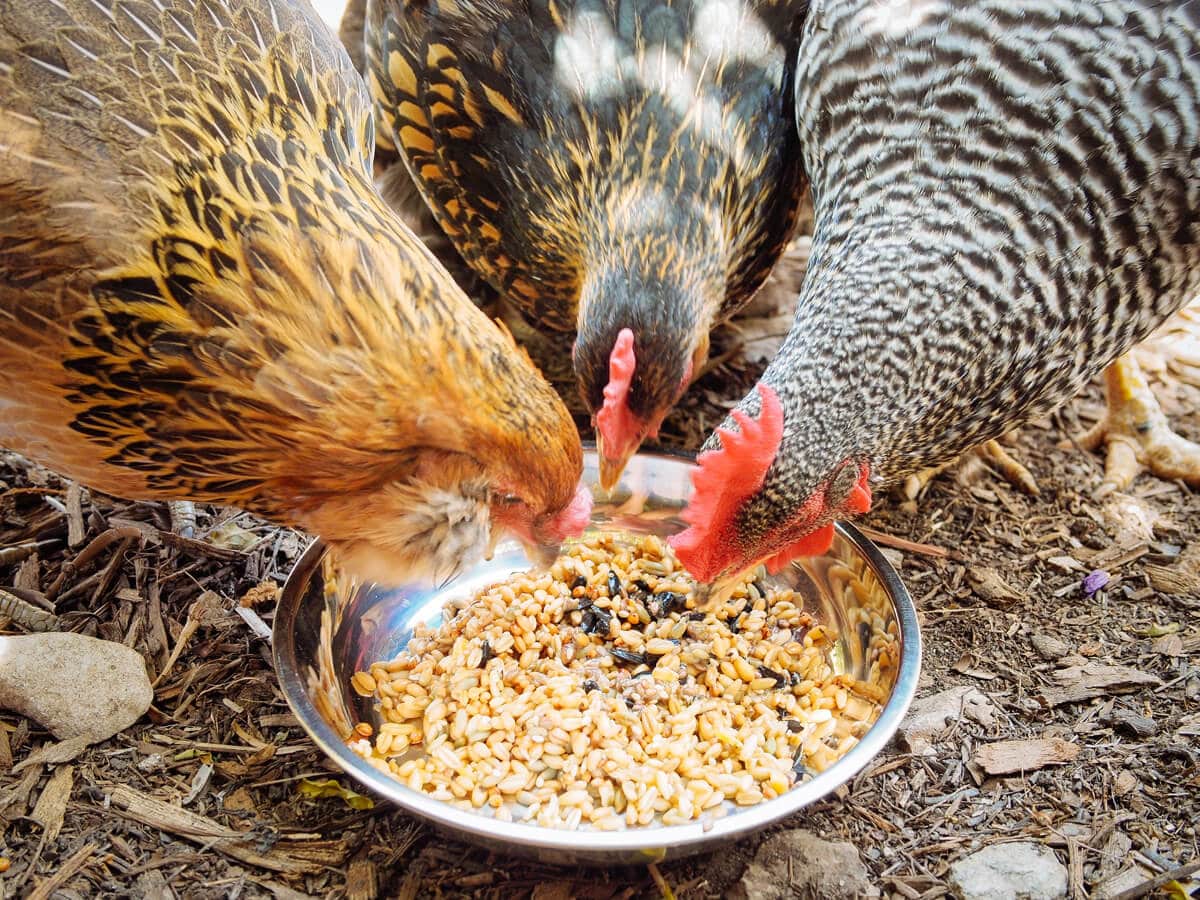
One of the farms we visited had about 40 chickens that only produced 1 egg per day. We increased their care, fed them quality fermented feed, Asian pears, and gave them access to cow patties full of fly larvae.
With these changes their egg production went from 1 egg to over 2 dozen eggs per day within a month during the Winter!
How to ferment chicken feed
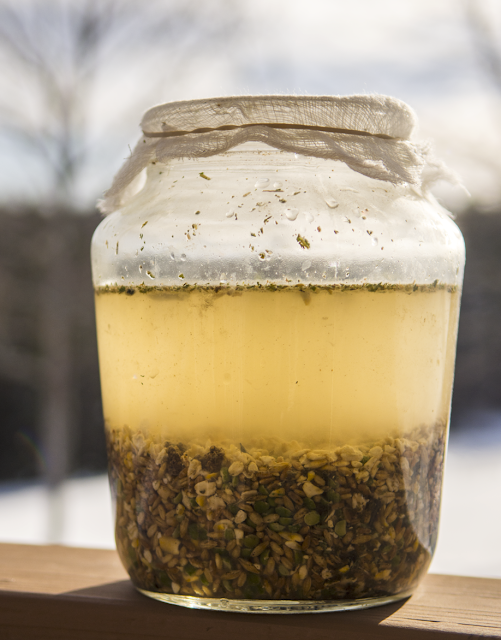
1. Fill appropriately-sized glass jar 1/3 full with choice of grains or high quality chicken feed.
2. Add non-chlorinated water to the jar to cover grains or feed by 2 - 4 inches.
3. Stir and cover jar with breathable cloth. Secure cloth with a rubber band or piece of string.
4. Leave on your kitchen counter or other suitable area to ferment for 3 days - stirring occasionally.
5. Then drain the water and feed to your chickens.
Fermenting deactivates anti-nutrients in grains making them more digestible and increases nutrients.
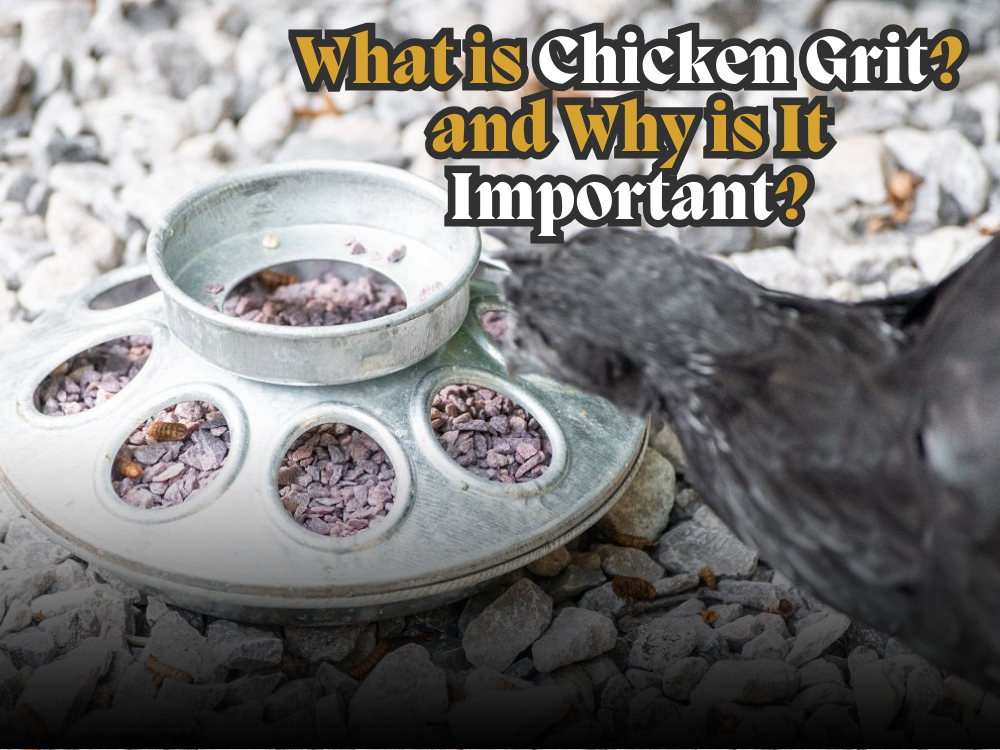
In case you were wondering - chickens do not have teeth. Feeding chickens grit helps them to digest their food.
If chickens are allowed to roam and scratch in an area that contains dirt or gravel, this will satisfy that need.
Otherwise, you will need to supply grit by keeping it near their food or in an area where they like to scratch.
Laying hens need adequate amounts of vitamins and minerals for healthy egg production. Feeding fermented grains and a variety of raw food helps.

It's a good idea to feed chickens a variety of fresh whole foods like greens and vegetables.
These are some of the greens you can feed chickens: kale, lettuce, turnip greens, cabbage, collard greens, carrot tops, parsley, and cilantro.
You must also let your chickens get enough sunshine for eggs to contain a good amount of vitamins D and A.
Chickens will need at least 6 to 8 hours of direct sunlight.
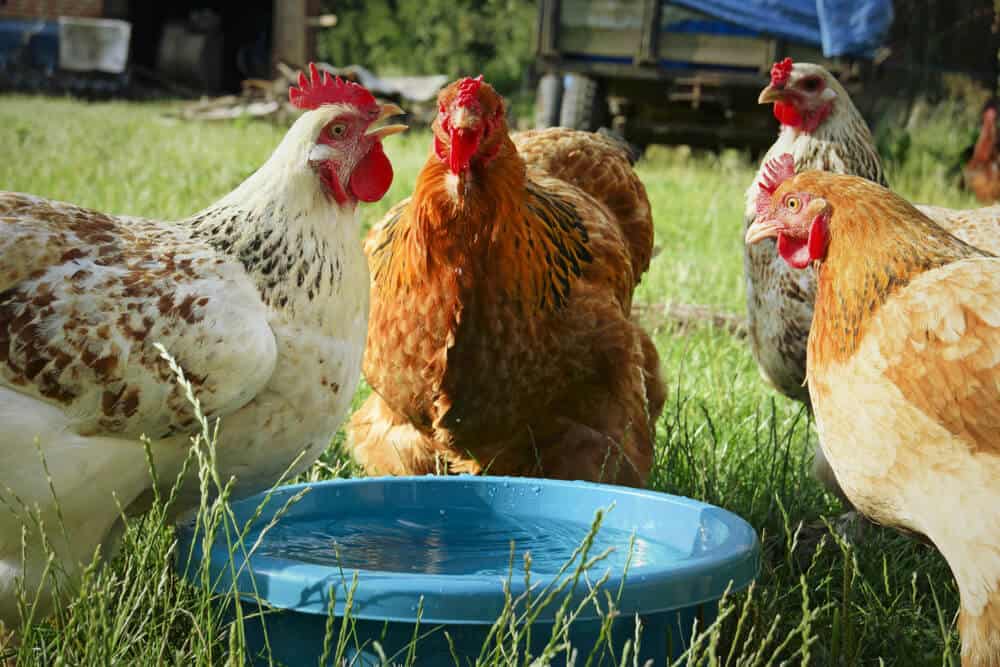
Chickens will need an ample amount of clean water to produce their eggs.
Make sure their water is replenished.
Please be aware that during the winter months you may have to increase their calories in order for your chickens to keep laying.
A few chicken feed alternatives: homemade chicken feed, compost pile, and pastured chickens.
As you have just learned, there are many alternative ways to feed chickens that will also be much healthier for your chickens.
Chickens don’t require the chicken feed people buy at big box stores or elsewhere. Commercial chicken feed is usually highly processed and come with synthetic vitamins and minerals.
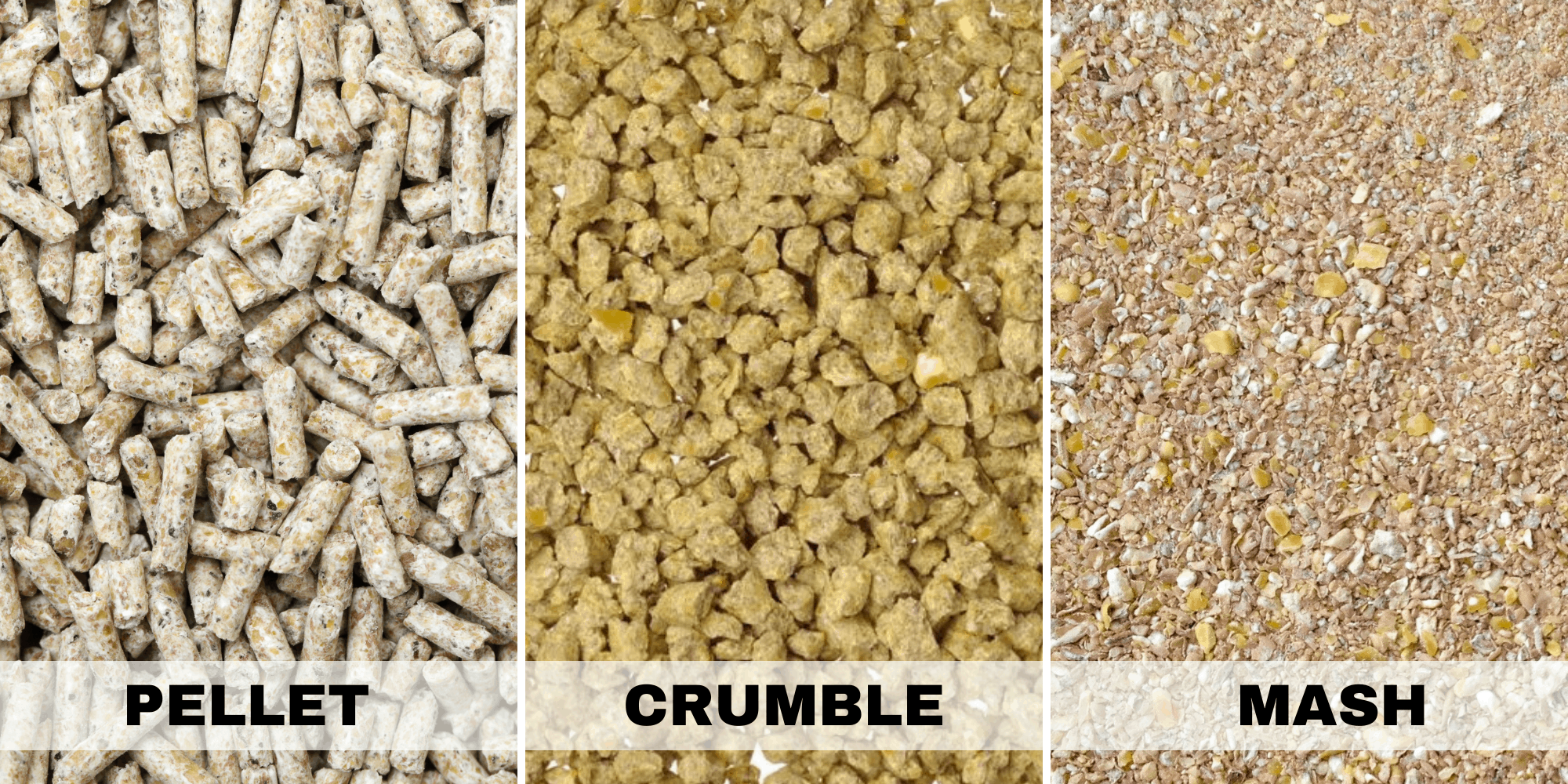
Laying Pellets - a "complete" feed made from laying mash that's heated and compressed to form pellets. The protein meal can come from meat, fish, or vegetables.
Unfortunately, a lot of the commercial feeds will contain soybean meal or roasted soybeans - read your labels!
Laying Crumbles - are basically pellets that have been crumbled for easier eating. This makes it easier to swallow and is catered towards younger hens.
Laying Mash - a "complete" feed from grains that are crushed and mashed instead of in whole form. This type of feed is mixed with protein meal and supplements.
- Chickens that are laying eggs will need approximately 1/4 pound to 1/3 pound of a well-balanced chicken feed per day.
I have not been impressed with almost all commercial chicken feed. Even a popular private organic brand used by farms we visited was not very good.
Because of this experience, I recommend feeding chickens real foods and chicken feed alternatives.
Make your own homemade chicken feed: create different mixtures for variety.
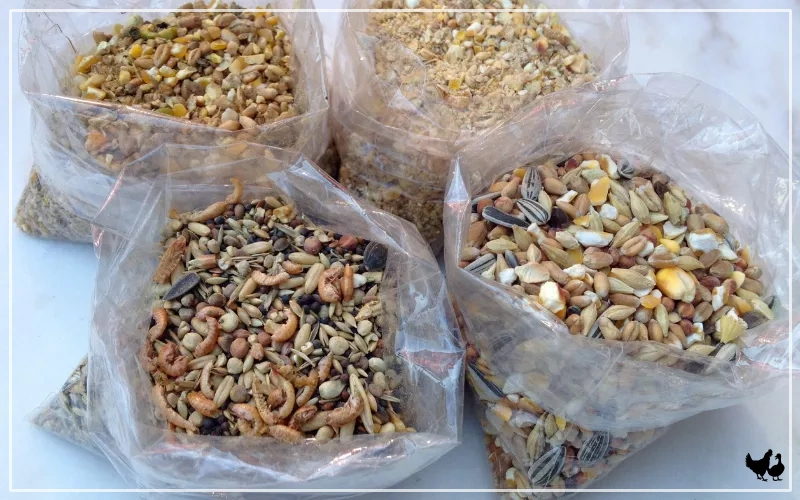
Some owners of chickens actually prefer to create their own chicken feed.
This works as long as you provide a good balance of nutrients.
This approach allows for greater control over the ingredients and quality control.
Homemade chicken feed can include a combination of grains, protein sources, and calcium sources.
For example: wheat berries, corn, dried peas, dried mealworms, sunflower seeds, and dried egg shells could be one mixture.
Oats, wheat, millet, dried mealworms, flax seeds, and crushed oyster shells could be another mixture.
Compost pile: an alternative way to feed chickens.
What do chickens eat in a compost pile?
Believe it or not, there is a lot of life and critters that live in a compost pile that will help to give your chickens the protein and fat they need in their diet.
A compost pile is a great place to dump your kitchen scraps and spent garden plants.
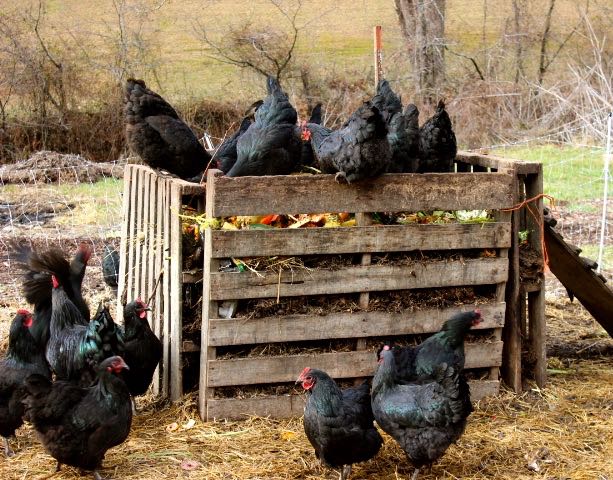
It also gives your chickens something to do and it will also end up giving you incredible compost that you can use in your garden to grow more food.
This is a great alternative to feeding chickens. Feeding chickens your food waste or a neighbor's food waste that you compost can save you a lot of money.
To top it off, I believe feeding chickens too much grain and chicken feed will shorten their lives and lower the productivity of your laying hens.
Pastured chickens: a healthy alternative for your chickens.

A pasture rotation system is especially great for flocks of 50 or more hens.
You'll need a large enough coop and enough land to move the coop regularly.
If your lucky enough to have cows, chickens can follow the cows.
They will be able to get a lot of protein and some fat from the larvae in the cow patties. Pasture gives chickens access to grass, weeds, and other sources of protein.
What do chickens eat in addition to what's available on pasture?
At least once a day, offer some sort of supplemental feed in addition to what they can find on the pasture.
This can be leftovers or meat scraps, compost type food waste, extra fruits and vegetables from the garden, fermented grains, or homemade chicken feed.
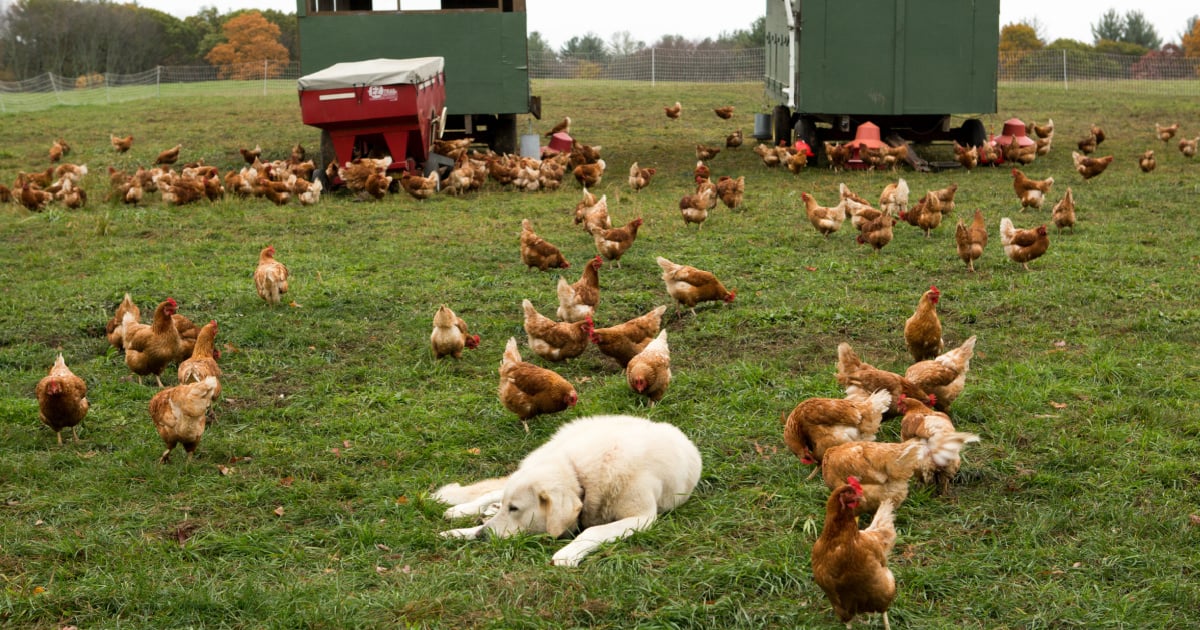
You will also have to set up some sort of watering system for your chickens.
Guardian birds like dogs, roosters, and geese kept with hens helps to protect them. An electric fence can also be used to keep chickens confined to the area and keep many predators out.
You will probably have to lock your chickens up at night when they go in to roost. And be sure your locks are racoon proof!
Be sure to let them out in the morning, so they can start foraging for food again and be sure to collect the eggs every day to prevent chickens from eating their own eggs.
What not to feed chickens: please keep junk food away from your chickens!
Chickens are omnivores and can eat a variety of foods. However, there are some things that you should not feed your chickens.
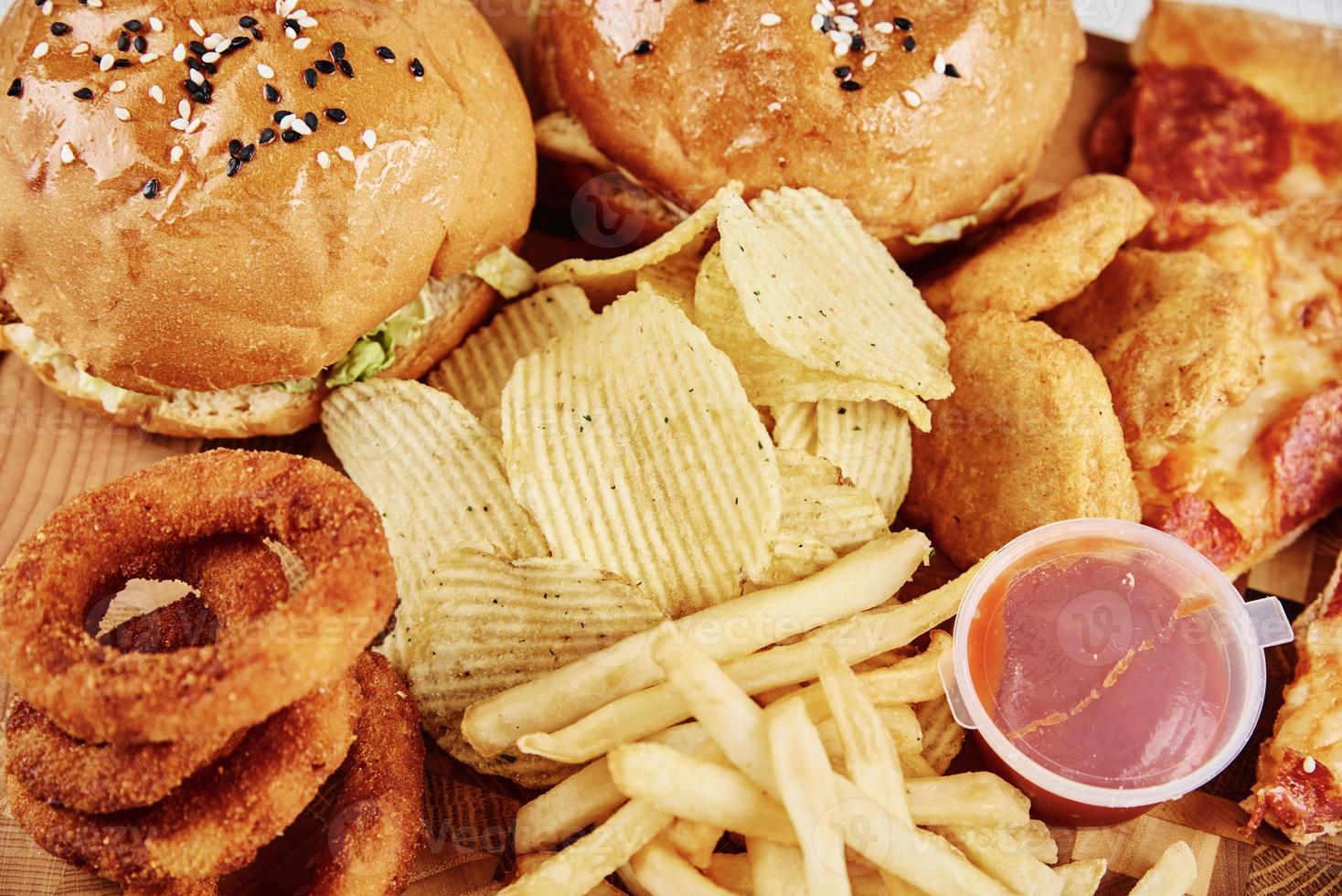
Green potatoes, their peels, and potato leaves are toxic to chickens.
Cooked potatoes are okay, but don't feed chickens raw potatoes.
Chickens can't eat rhubarb and its leaves which are both toxic.


Chickens can't eat dry or raw beans which are toxic.
Don't feed chickens soybeans, kidney beans, black beans, pinto beans, or lima beans.
Chickens can't eat uncooked pasta or uncooked rice.
Raw eggs are actually healthy for chickens, but it may train them to eat their own eggs.
Avocado contains a toxin that may hurt chickens.
Don't feed citrus peels to chickens, but they can eat a little citrus fruit.
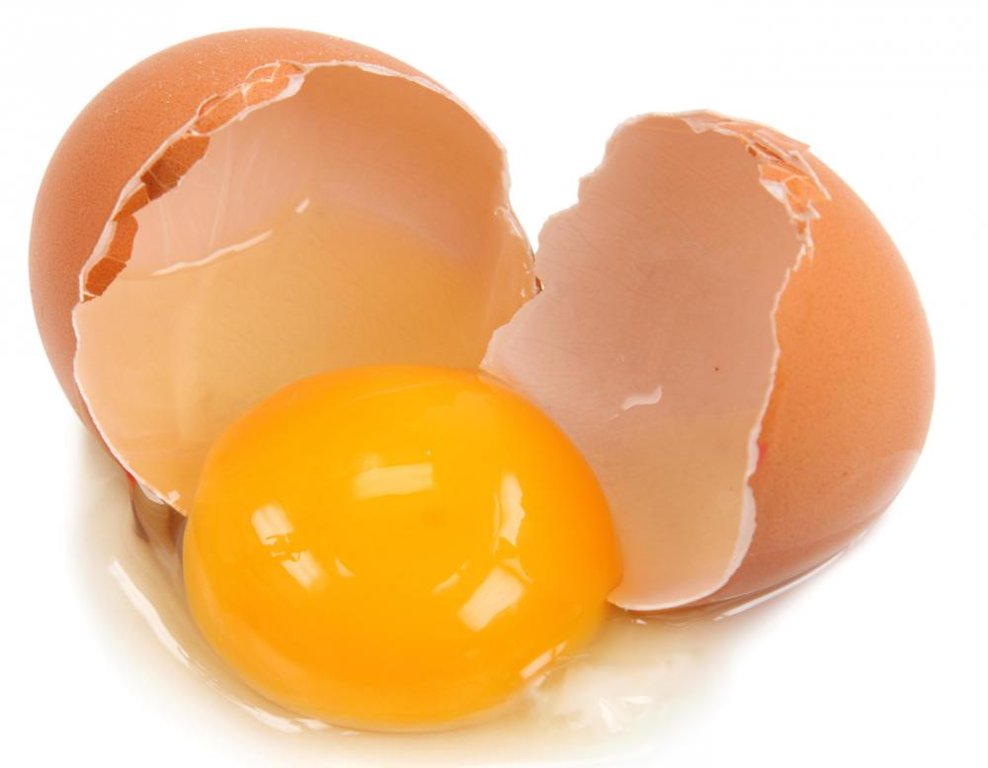
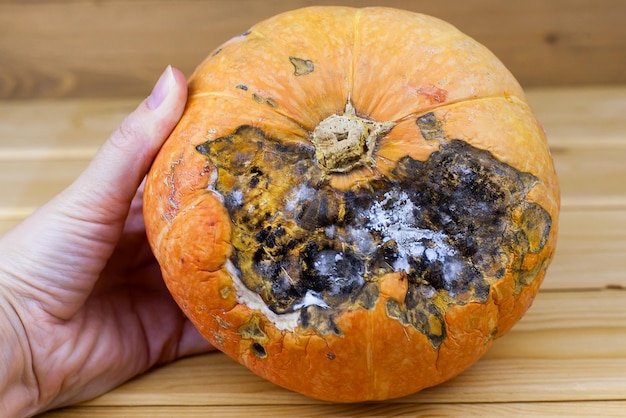
Chickens can't eat rotten or moldy foods. It could make them sick.
Ripe tomatoes are okay, but not green tomatoes or tomato leaves.
Chickens can't eat raw eggplant or the leaves of eggplants.
Beware: foods like garlic, shallots, asparagus, fish, and onions may give your eggs an off flavor.
Based on my own experience, I would advise you to stay away from any feed that contains soybeans, too much salt, and too many supplements.
Make sure chicken feed is free from toxic chemicals, toxic ingredients, hormones, and antibiotics when buying chicken feed.
Remember, what you feed your chickens decides how healthy your chickens will be and the nutritional content of their eggs.
- Home
- Foods High in Minerals
- What do Chickens Eat?
Resources:
1. How to Raise Chickens Without Feed (And Why it's Better!) by Kimberly from Backyard Homestead HQ
2. What Can Chickens Eat? 100 Favorite Chickens Foods! by Meredith from Backyard Chicken Project
3. How to Make Cheap Homemade Chicken Feed with Only 5 Ingredients by Masha Goepel, Garden and Happy
4. What Chickens Can and Cannot Eat: Complete Guide by Kimberly from Backyard Homestead HQ


